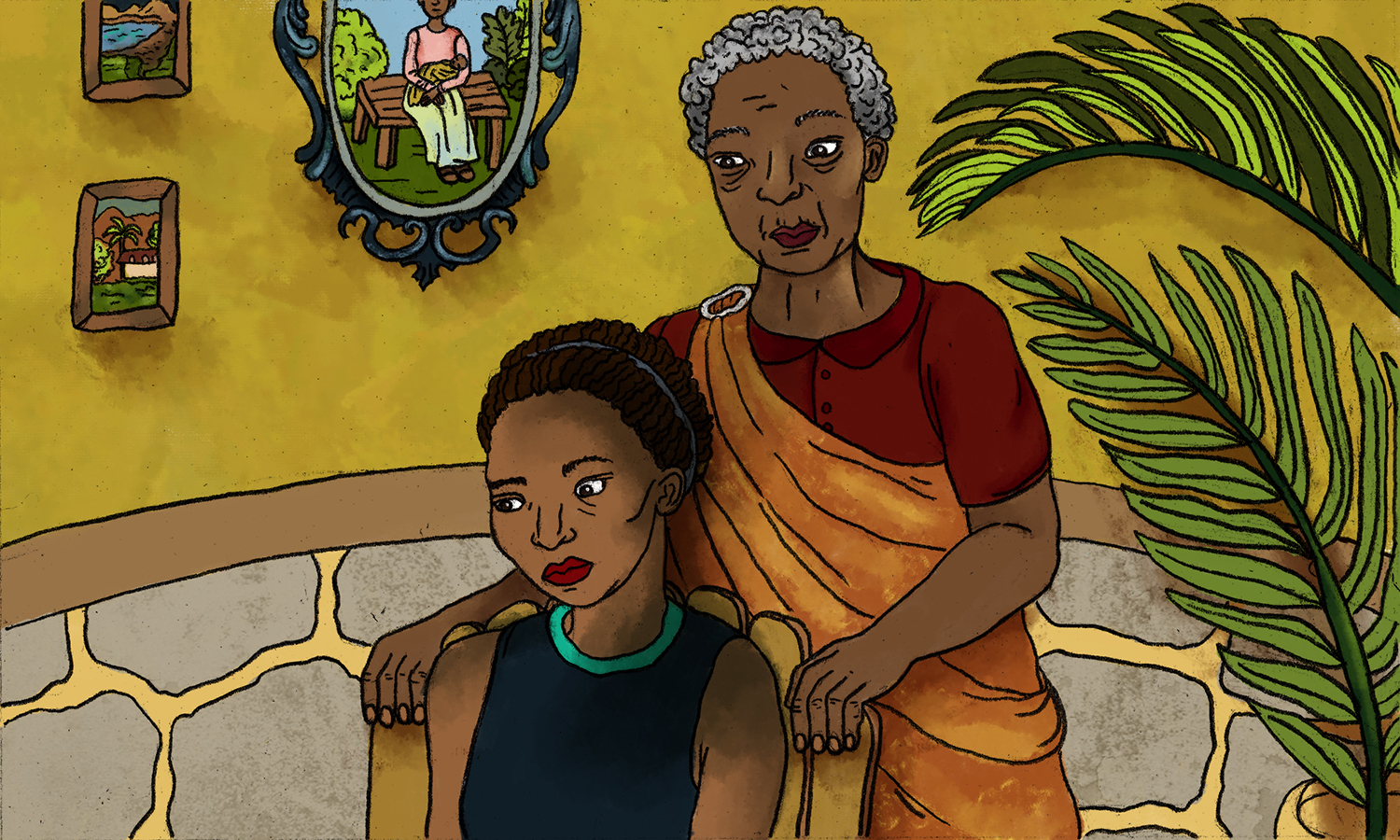Sois discrète tu ne devrais pas être là
Laisse les regards te traverser
Deviens insensible aux mots sournois
Tu es la fille n’oublie jamais
Évanouis-toi quand on te scrute
envole-toi en fumée disparais
Fonds-toi au milieu de la foule
laisse-la t’avaler
Si elle te cache qu’elle te hait
cache lui donc que tu le sais
Croise tes jambes croise tes bras
baisse d’un ton ferme ta bouche
Ne laisse pas traîner tes ongles
tes cheveux ton odeur
brûle tout
N’as-tu pas honte ne sois pas effrontée
là il n’y a rien n’y touche pas
Agenouille tes yeux sois sage
lis autant que tu voudras
dans la pénombre
Mais ne vas rien t’imaginer
tout doit rester entre nous
à l’intérieur
Sois polie ne pose pas de questions
sois gentille ne tente pas d’être jolie
Tiens ton bras
courbe toi quand tu salues
ton cou ton nez tes jambes habille-les
Reste derrière
devant on ne verrait que toi
ne chante pas tu te ferais repérer
On ne voit que moi
l’ombre de ma peau fait trop de bruit
tu as dit que je chantais faux
Article 1: tais-toi
Article 2: tais-toi
Article 3: tais-toi
Article 4:
un jour je dirai de la poésie
un jour le soleil avalera la nuit
Note: The girl was given a very strict education. Like all other Rwandan girls, the orders given by her mother forbid her to talk loud, to dream wild or to be too pretty. She is supposed to become invisible but her light skin, as a métisse, mixed white and black, makes this impossible: even her shadow is too noisy. But at the end comes a promise of freedom: once grown up, she will write poetry and then “the sun will swallow the night.”
This poem pays a double tribute to Jamaica Kincaid’s Girl and La Violence et L’ennui, a song by Léo Ferré.
Beata Umubyeyi Mairesse was born in Rwanda in 1979 and fled to France in 1994 as a teenager. After studying political science, she worked abroad as a health program manager. She now lives in Bordeaux. Her first two short-story collections – Ejo & Lézardes – were winners of several literary awards and paint a vivid picture of her Rwandan generation and describe the experience of genocide survivors. Her first novel, Tous Tes Enfants Dispersés, a tale on transmission and métissage, was published in 2019 to critical acclaim. In 2019, she also published Après Le Progrès, a poetry collection.

Cover Image: La Fille, 2020. © Katherine Hunter.
Katherine Hunter is a Namibian illustrator, graphic designer, and dancer. She is interested in comic book illustration and fantasy fiction. She obtained her undergraduate degree in Visual Communication Design (Illustration) at the Stellenbosch Academy of Design and Photography, her honours degree in illustration, and her master’s degree in art education from Stellenbosch University. Katherine works as a graphic designer and typesetter at HouseFinder Magazine. She has also recently launched her own Namibian art brand, Maan Atelier, which focuses on creating fantasy artwork and stories.